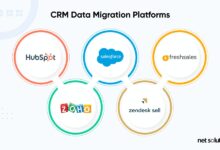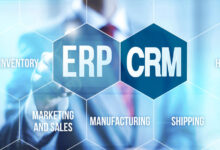Salesforce enterprise implementation partner: Top 7 Salesforce Enterprise Implementation Partner Secrets Revealed
Choosing the right Salesforce enterprise implementation partner can make or break your digital transformation. With so many options, how do you pick the one that truly aligns with your business goals? Let’s break it down—strategically, technically, and practically.
Why a Salesforce Enterprise Implementation Partner Is Non-Negotiable

For enterprises scaling their CRM capabilities, going it alone with Salesforce is like flying a 747 without a pilot. The platform is powerful, but its complexity demands expert navigation. A certified salesforce enterprise implementation partner doesn’t just install software—they architect business transformation.
Complexity of Enterprise Salesforce Deployments
Unlike small business CRM setups, enterprise Salesforce implementations involve multiple business units, legacy system integrations, compliance requirements, and global data governance. According to Salesforce’s own research, organizations with over 1,000 employees use an average of 8+ Salesforce clouds (Sales Cloud, Service Cloud, Marketing Cloud, etc.), each requiring tailored configuration.
- Multi-cloud architecture demands deep integration expertise
- Data migration from legacy ERPs like SAP or Oracle is high-risk
- Custom workflows must align with existing business processes
Without a seasoned salesforce enterprise implementation partner, companies risk costly rework, user adoption failure, and project delays.
The Cost of Going Solo
A 2023 Gartner report found that 68% of failed Salesforce implementations were due to lack of external expertise. Internal IT teams often lack the bandwidth or specialized knowledge in declarative development, Apex coding, or Einstein AI integration. Even worse, misconfigured security models or flawed data architecture can lead to compliance breaches.
“The difference between a successful Salesforce rollout and a failed one often comes down to partner selection,” says Sarah Johnson, VP of Digital Transformation at Forrester.
Top 7 Qualities of a World-Class Salesforce Enterprise Implementation Partner
Not all partners are created equal. The best salesforce enterprise implementation partner combines technical mastery with strategic foresight. Here’s what sets the elite apart.
1. Salesforce Platinum or Partner Tier Certification
Salesforce ranks its partners through a tiered system—Registered, Silver, Gold, and Platinum. Platinum partners have passed rigorous audits on customer success, technical capability, and employee certifications. They also have direct access to Salesforce’s internal support teams and early feature previews.
- Platinum partners must have 75+ certified professionals
- They deliver 100+ successful implementations annually
- Access to Salesforce’s Partner Success Hub for escalation support
Check the official Salesforce Partner Directory to verify status.
2. Industry-Specific Expertise
A healthcare enterprise has different compliance needs (HIPAA, GDPR) than a financial services firm (SOX, FINRA). The best salesforce enterprise implementation partner doesn’t just know Salesforce—they understand your industry’s pain points.
- Retail partners should know omni-channel order management
- Manufacturers need partners experienced in CPQ and field service
- Higher education partners must handle student lifecycle CRM
Ask for case studies in your vertical. A partner who’s implemented Salesforce for a Fortune 500 bank will anticipate regulatory hurdles you haven’t even considered.
3. Proven Methodology: Beyond Just Agile
The top partners don’t wing it. They use battle-tested implementation frameworks like Salesforce’s own AgilePath or proprietary models such as Deloitte’s AIM (Accelerated Implementation Methodology).
- Discovery phase with stakeholder interviews
- Process mapping using BPMN or value stream analysis
- Phased rollouts with pilot groups and feedback loops
Methodology reduces risk by 40%, according to a 2022 McKinsey study on enterprise software deployments.
4. Strong Post-Go-Live Support Model
Implementation doesn’t end at launch. The best salesforce enterprise implementation partner offers hypercare—intensive support for 30–90 days post-launch. This includes:
- Dedicated support desk with SLA guarantees
- User adoption monitoring via Trailhead dashboards
- Change request management for quick fixes
Without this, user frustration spikes, and adoption drops. Salesforce reports that companies with strong post-go-live support see 2.3x higher user engagement.
5. Integration Mastery with Legacy Systems
Enterprises rarely run on Salesforce alone. ERP systems (SAP, Oracle), HR platforms (Workday), and data warehouses (Snowflake) must sync seamlessly. A top-tier salesforce enterprise implementation partner uses tools like MuleSoft (a Salesforce company), Dell Boomi, or custom middleware.
- Real-time sync vs. batch processing decisions
- API management and governance policies
- Error handling and data reconciliation workflows
For example, a global logistics firm reduced invoice processing time by 60% after its salesforce enterprise implementation partner integrated Salesforce with SAP using MuleSoft.
6. Change Management & User Adoption Strategy
Technology is only 30% of the battle. The rest is people. A great partner invests in change management—training, communication, and leadership alignment.
- Role-based training paths using Salesforce Trailhead
- Executive sponsorship workshops
- Adoption dashboards to track login rates and feature usage
“We didn’t just implement Salesforce—we changed how 5,000 employees work,” says a CIO after a successful rollout with a top-tier partner.
7. Innovation & Future-Readiness
The best partners don’t just build what you need today—they anticipate tomorrow. They guide clients on AI (Einstein Analytics), IoT, and low-code automation (Flow, Process Builder).
- Quarterly innovation reviews to assess new Salesforce features
- Proof-of-concept sprints for emerging tech
- Scalable architecture that supports future acquisitions
One manufacturing client saved $2.1M annually after its salesforce enterprise implementation partner automated service dispatch using AI-powered routing.
How to Evaluate and Shortlist Potential Salesforce Enterprise Implementation Partners
With over 1,200 partners in the Salesforce ecosystem, how do you narrow it down? Use a structured evaluation framework.
Step 1: Define Your Project Scope & Success Metrics
Before reaching out, clarify:
- Which Salesforce clouds you need (Sales, Service, Marketing, Commerce, etc.)
- Key business outcomes (e.g., 30% faster lead conversion)
- Budget and timeline constraints
This helps partners give accurate proposals—not generic pitches.
Step 2: Use the Salesforce Partner Finder Tool
Navigate to Salesforce’s official partner directory and filter by:
- Partner tier (Platinum preferred)
- Industry focus (e.g., Financial Services, Healthcare)
- Geographic coverage (global vs. regional)
- Customer reviews and ratings
The tool surfaces partners with verified credentials and customer testimonials.
Step 3: Conduct Rigorous RFPs and Discovery Calls
Send a detailed Request for Proposal (RFP) to 3–5 shortlisted partners. Include:
- Sample integration scenarios
- Data migration volume and complexity
- Security and compliance requirements
Then, conduct 90-minute discovery calls. Ask:
- “Can you walk me through a similar implementation?”
- “How do you handle scope creep?”
- “What’s your average project overrun rate?”
Listen for specific examples, not vague promises.
salesforce enterprise implementation partner – Salesforce enterprise implementation partner menjadi aspek penting yang dibahas di sini.
Step 4: Check References and Case Studies
Ask for 2–3 client references—especially those in your industry. Questions to ask references:
- “Did the partner deliver on time and within budget?”
- “How responsive were they during hypercare?”
- “Would you hire them again?”
Also review published case studies. Look for quantifiable results: “Increased sales productivity by 45%” beats “improved efficiency.”
Common Pitfalls to Avoid When Hiring a Salesforce Enterprise Implementation Partner
Even with the best intentions, companies make costly mistakes. Here’s how to sidestep them.
Pitfall 1: Choosing Based on Price Alone
The cheapest bid often becomes the most expensive. Low-cost partners may cut corners on testing, training, or architecture. One client saved $150K upfront but spent $500K fixing data corruption six months later.
- Focus on total cost of ownership (TCO), not just implementation fee
- Include ongoing support and upgrade costs in your model
- Budget for change management—it’s often underfunded
Pitfall 2: Ignoring Cultural Fit
Implementation takes 6–18 months. You’ll work closely with the partner’s team. If their communication style clashes with yours, friction will slow progress.
- Assess responsiveness during the sales cycle
- Check if they use your preferred collaboration tools (Slack, Teams, Jira)
- Ensure they respect your decision-making hierarchy
Pitfall 3: Underestimating Data Readiness
“Garbage in, garbage out” applies to Salesforce. A partner can’t fix dirty data. One retail client had 40% duplicate customer records—delaying launch by 3 months.
- Conduct a data audit before engaging a partner
- Define data ownership and governance rules
- Budget for data cleansing tools like DemandTools
Pitfall 4: Over-Customization
Salesforce is designed to be configured, not customized. Excessive Apex code or Visualforce pages make upgrades harder and increase technical debt.
- Adopt the “Clicks not Code” principle where possible
- Use Salesforce’s out-of-the-box features first
- Reserve customization for true differentiators
A top salesforce enterprise implementation partner will push back on unnecessary customization.
The Implementation Lifecycle: What to Expect from Your Salesforce Enterprise Implementation Partner
Understanding the phases helps set expectations and ensures accountability.
Phase 1: Discovery & Strategy (Weeks 1–4)
The partner conducts workshops with stakeholders to map:
- Current state processes (as-is)
- Future state goals (to-be)
- Key performance indicators (KPIs)
Deliverable: A signed Project Charter with scope, timeline, and success criteria.
Phase 2: Design & Architecture (Weeks 5–8)
Technical architects design the system blueprint:
- Data model (objects, fields, relationships)
- Integration architecture (APIs, middleware)
- Security model (profiles, permission sets, sharing rules)
Deliverable: Technical Design Document (TDD) approved by your IT team.
Phase 3: Build & Configure (Weeks 9–20)
Developers and admins build the solution in a sandbox environment:
- Custom objects, page layouts, automation (Flow, Process Builder)
- Integration with ERP, marketing tools, or call center systems
- Reports and dashboards for leadership
Weekly sprint reviews ensure alignment.
Phase 4: Test & Validate (Weeks 21–26)
Rigorous testing includes:
- Unit testing by developers
- User Acceptance Testing (UAT) with business users
- Performance and load testing
- Security review (penetration testing if needed)
Defects are logged and resolved in a tracking system like Jira.
Phase 5: Deploy & Go-Live (Week 27)
The partner executes a cutover plan:
- Final data migration
- Production deployment
- Go-live support team on standby
Downtime is minimized with phased rollouts or weekend deployments.
Phase 6: Hypercare & Optimization (Weeks 28–52)
Post-launch support includes:
- Fixing critical bugs
- Answering user questions
- Monitoring system performance
- Gathering feedback for Phase 2 enhancements
Adoption rates should exceed 80% within 90 days.
Top 5 Salesforce Enterprise Implementation Partners in 2024
Based on customer reviews, certifications, and industry impact, here are the leaders.
1. Accenture
A global powerhouse with over 15,000 Salesforce professionals. Accenture combines deep technical expertise with business transformation consulting.
- Platinum Salesforce partner since 2010
- Industry-specific solutions for banking, retail, and healthcare
- Uses its Industry X innovation labs for rapid prototyping
Client example: Helped a global insurer reduce claims processing time by 50%.
2. Deloitte
Deloitte’s Salesforce practice is part of its broader digital transformation arm. Known for strong governance and risk management.
- Platinum partner with 100+ Salesforce-certified architects
- Proprietary AIM methodology
- Strong focus on compliance and audit readiness
Client example: Enabled a Fortune 500 pharma company to launch a patient engagement portal in 6 months.
3. Capgemini
Capgemini excels in large-scale, multi-country deployments. Their Intelligent Industry framework aligns Salesforce with operational data.
- Platinum partner with 8,000+ Salesforce experts
- Strong in manufacturing and energy sectors
- Uses AI-driven analytics for predictive service
Client example: Integrated Salesforce with IoT sensors for predictive maintenance in a utility company.
salesforce enterprise implementation partner – Salesforce enterprise implementation partner menjadi aspek penting yang dibahas di sini.
4. Slalom
A customer-centric partner known for agility and user experience focus. Ideal for mid-to-large enterprises wanting a collaborative approach.
- Gold partner with rapid delivery model
- Specializes in Marketing Cloud and Commerce Cloud
- High customer satisfaction scores on Gartner Peer Insights
Client example: Boosted e-commerce conversion rates by 35% for a fashion brand.
5. Infosys
Infosys combines offshore efficiency with onshore strategy. Strong in cost-optimized, scalable implementations.
- Platinum partner with 10,000+ Salesforce consultants
- Uses its LiquidStudio for immersive design thinking
- Focus on automation and AI integration
Client example: Automated 80% of a telecom’s customer onboarding process.
Measuring Success: KPIs Your Salesforce Enterprise Implementation Partner Should Track
Success isn’t just “it’s live.” Define measurable outcomes from day one.
User Adoption Rate
The percentage of employees actively using Salesforce. Below 70% indicates training or usability issues.
- Track via login frequency and feature usage
- Compare against pre-launch benchmarks
- Use Salesforce’s Adoption Dashboard or third-party tools like Growbots
Lead-to-Opportunity Conversion Time
How fast leads move through the funnel. A good salesforce enterprise implementation partner should reduce this by 25–40%.
- Automate lead scoring and routing
- Integrate with marketing automation (Pardot, Marketo)
- Enable mobile access for field sales
Customer Satisfaction (CSAT) & Net Promoter Score (NPS)
Service Cloud implementations should improve customer experience.
- Track CSAT post-case resolution
- Monitor NPS trends over time
- Link improvements to Salesforce features like omnichannel routing
Return on Investment (ROI)
Calculate hard savings: reduced support costs, faster sales cycles, fewer errors.
- Compare pre- and post-implementation metrics
- Include soft benefits like employee satisfaction
- Target 3:1 ROI within 18 months
System Uptime & Performance
Salesforce guarantees 99.9% uptime, but custom code can degrade performance.
- Monitor page load times and API response rates
- Conduct quarterly performance reviews
- Optimize SOQL queries and governor limits
Future Trends: How Your Salesforce Enterprise Implementation Partner Must Evolve
The role of the salesforce enterprise implementation partner is changing. Here’s what’s next.
Rise of AI & Einstein GPT
Partners must now integrate generative AI into workflows. Einstein GPT can auto-generate email responses, summarize cases, and predict churn.
- Train partners on prompt engineering for CRM
- Ensure data quality for AI accuracy
- Address ethical concerns around AI bias
Low-Code & Citizen Development
Business users are building apps with Flow and Experience Cloud. Partners must enable, not control.
- Create governance frameworks for citizen developers
- Provide sandbox environments for experimentation
- Offer training on best practices
Sustainability & Ethical Tech
Enterprises demand green IT. Partners should optimize cloud usage to reduce carbon footprint.
- Right-size data storage and archiving
- Use energy-efficient integration patterns
- Report on sustainability metrics
What is a Salesforce enterprise implementation partner?
A Salesforce enterprise implementation partner is a certified consulting firm that specializes in deploying Salesforce solutions for large organizations. They handle everything from strategy and design to integration, change management, and post-launch support.
How much does a Salesforce enterprise implementation cost?
Costs vary widely based on scope. Small implementations start at $100K, while enterprise-wide rollouts with multiple clouds can exceed $2M. The partner’s hourly rate ranges from $150–$300 depending on expertise.
How long does a Salesforce enterprise implementation take?
Typically 6 to 18 months. Simple Sales Cloud deployments take 6–9 months; complex multi-cloud, global rollouts can take 12–18 months or more.
Can I switch partners mid-implementation?
Yes, but it’s risky. Transition costs, knowledge gaps, and timeline delays are common. Only switch if the current partner is underperforming or lacks critical expertise.
What’s the difference between a Salesforce partner and a Salesforce consultant?
A partner is an organization with official Salesforce accreditation and a track record of delivering full implementations. A consultant may be an individual freelancer or part of a partner firm, often focusing on specific tasks like configuration or training.
Selecting the right salesforce enterprise implementation partner is one of the most strategic decisions an enterprise can make. It’s not just about technical skill—it’s about partnership, vision, and shared success. From discovery to hypercare, the right partner acts as an extension of your team, driving adoption, innovation, and measurable ROI. As Salesforce evolves with AI, IoT, and low-code, your partner must evolve too. Choose wisely, plan thoroughly, and invest in the relationship—not just the technology.
salesforce enterprise implementation partner – Salesforce enterprise implementation partner menjadi aspek penting yang dibahas di sini.
Further Reading:


